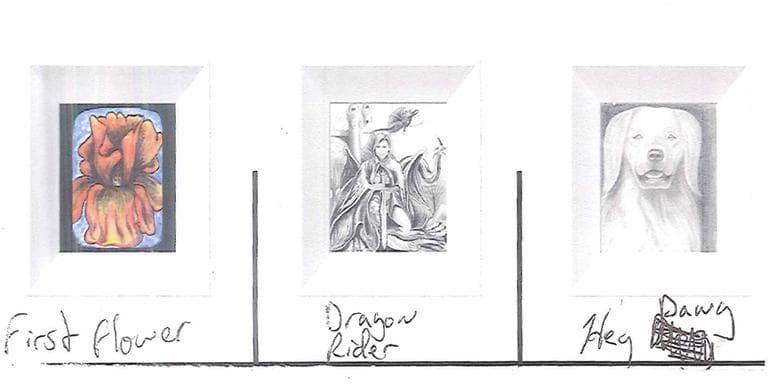Advertisement
Sentenced As Juveniles, Those Serving Life Await Ruling
Thirty-seven-year-old Joe Donovan has been in prison for almost 20 years.
"My whole adult life is in prison," he said from a conference room at MCI Shirley.
When he was 17, Donovan was sentenced to life in prison without the possibility of parole for the murder of Yngve Raustein. Now, the U.S. Supreme Court is reviewing the constitutionality of juvenile sentences just like his.

"It makes me hopeful," Donovan said. "I believe that they're going to rule with some sort of middle ground. What they may say is if you did not participate in the murder, did not help with the murder, did not actually kill anyone, you shouldn't be put in prison for the rest of your life without at least a chance for a hearing at some point in the future."
Although he was at the scene of Raustein's murder, Donovan was not the killer. That was 15-year-old Shon McHugh.
"They charged him as a juvenile. They charged me as an adult automatically in Massachusetts. They don't even have a hearing. They have a hearing for him to see if he can be rehabilitated. They said that he can be rehabilitated," Donovan explained. "Because I was 17, I don't get that hearing. There's no hearing to see if I can be rehabilitated."
Donovan said he constantly re-lives that night in September of 1992 when, as he tells it, he was walking with McHugh and another teen on Memorial Drive in Cambridge, near MIT, where Raustein was a student. Donovan's group walked by Raustein and a friend and the two groups got into a fight. Donovan punched Raustein and, as Raustein was on the ground, McHugh stabbed Raustein and the boys took off.
"Now, I'm not thinking he stabbed the kid back there, right, because you would think you would say that, right? Or I would have seen it. And I'm thinking he must of just stabbed somebody when I was gone. I'm like, what happened, right? He's wiping the blood off the knife and he says, 'I stabbed that kid.' [I said] 'Why'd you do that?' He said he wanted to know what it was like to kill somebody or something to that effect," Donovan recalled.
Advertisement
Donovan was arrested that night, three weeks after his 17th birthday. In exchange for leniency, the third defendant, Alfredo Velez, cut a deal and pleaded guilty. Donovan refused.
"Later on they had offered me deals or whatever, but they were always [to] plead guilty to a murder or something like that," Donovan explained. "And I don't think I did murder. I find that hard to plead guilty to something I didn't do."
Donovan was convicted under what's known as the joint venture doctrine, which holds all suspects equally guilty when a felony is committed.
"It's a very complicated form of law. It's very strange and don't really make much sense," Donovan said. "As a child, I didn't ever think that that would have anything to do with me. How I could be responsible for the bad acts of someone else? And we're here now."
Retired Judge Robert Barton is among those saying Donovan should be released — especially since McHugh was released in 2003. But even more surprising: Raustein's family says Donovan has paid for his crime.
"One day I just decided that I should write them," Donovan said. "And I made it known in the letter that I'm really not looking for this for myself. I'm just saying I just wanted them to know how bad I felt about the situation and how stupid I was. I didn't realize I was walking around with dynamite on me. I didn't realize Shon's intent here or his volatile nature.
"They're very gracious people. They end up accepting the letter and saying we forgive you and we support your release."
But some believe that a life was lost, and he should serve out his life sentence in prison.
"I don't want to seem that I'm trying to shirk responsibility, but I'd done the least in the crime and I got the most sentence," Donovan said. "Regardless of that, I don't know if you can really consider a juvenile to be totally responsible for everything that happens, all consequences of an event."
That is the thrust of the question now before the U.S. Supreme Court: the criminal culpability of juveniles. Donovan said he's a much different person now than when he came to prison 20 years ago. He said he's no longer so quick to become angry and he's discovered the artistic abilities that allow him to draw elaborate pictures that his supporters sell online.
The only time Donovan's smile fades is when he talks about his family.
"The hardest thing, hands down about being here, is the pain I caused my family," Donovan said. "They have to come up here and be subject to this. They have to leave me here every time they come up and visit me. They have to hear me all the time. It's really a slow death. It's like their son is having a slow death and they have to deal with that. Sort of like the death penalty, only it's by increments."
But Donovan is still fighting. He has requested a commutation of his sentence, which Gov. Deval Patrick did not act upon. Depending on what the U.S. Supreme Court decides this summer, Donovan may ask for his sentence to be amended.

This program aired on April 12, 2012.